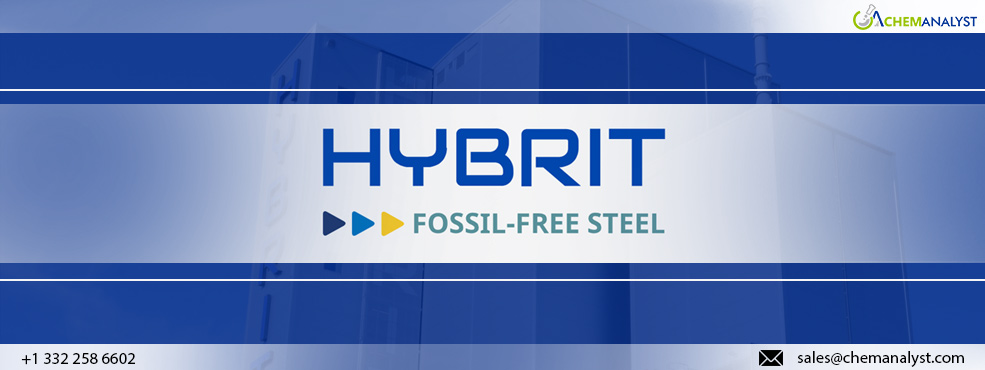Welcome To ChemAnalyst

The HYBRIT initiative has successfully concluded a six-year research project, culminating in a comprehensive report submitted to the Swedish Energy Agency. The report highlights the superior characteristics of direct reduced iron produced using the HYBRIT process compared to traditional fossil fuel-based methods. Building on these promising results, HYBRIT has secured several patents and is now transitioning to the next phase, where the process will be scaled up for industrial scale uses.
The HYBRIT initiative, a strategic alliance between steel manufacturer SSAB, mining company LKAB, and energy provider Vattenfall, aims to revolutionize the iron and steel industry by virtually eliminating carbon dioxide emissions. The project seeks to replace traditional coal and coke with fossil-free hydrogen and electricity in iron production. By transitioning from coal and blast furnace-based methods to HYBRIT’s technology and electric arc furnaces, Sweden is expected to cut its total carbon dioxide emissions by over 10 percent.
As a pioneering project globally, HYBRIT is the first to demonstrate the feasibility of a fossil-free value chain from iron ore to steel on a semi-industrial scale. To date, the pilot plant in Luleå has produced over 5,000 tonnes of hydrogen-reduced iron. Major customers, including Volvo Group, Epiroc, and Peab, are already incorporating this fossil-free steel into their vehicles, heavy machinery, infrastructure projects, and consumer products. The technology has generated substantial interest, underscoring its potential impact on the industry.
Martin Pei, Chief Technology Officer at SSAB and Chairman of the Board of HYBRIT Development AB, expressed immense pride in the accomplishments of the HYBRIT initiative since its inception in 2016. He highlighted that the successful outcomes of the pilot project are paving the way for a transformative shift in the iron and steel industry. SSAB is now making significant investments to transition its entire Nordic production system to fossil-free steel production and has commenced limited deliveries of fossil-free steel to customers.
The final report to the Swedish Energy Agency, covering research from 2018 to 2024, highlights key advancements in scaling up technical solutions from the laboratory to an industrial scale, establishing industrial process practices, and creating an integrated value chain for hydrogen-based iron and steelmaking.
Notable outcomes from the pilot phase include the development of a new hydrogen-based technology for producing steel with zero CO2 emissions per tonne, the creation of a superior fossil-free iron product (sponge iron) with enhanced properties compared to iron reduced with fossil fuels like natural gas, the successful long-term operation of alkaline electrolysers for hydrogen production and storage, and the establishment of an effective process for melting fossil-free sponge iron into crude steel using an electric arc furnace.
We use cookies to deliver the best possible experience on our website. To learn more, visit our Privacy Policy. By continuing to use this site or by closing this box, you consent to our use of cookies. More info.
